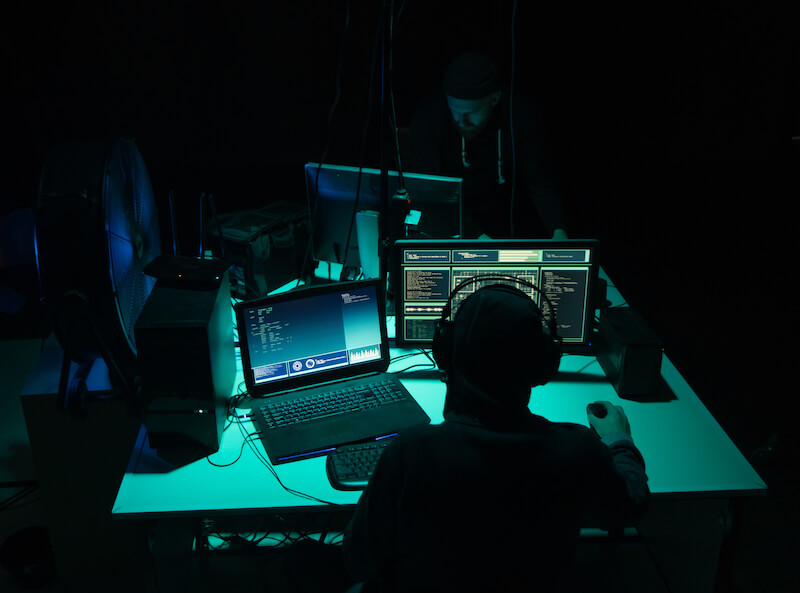Computer Crimes
Computer Crimes

Computer crime, also called cybercrime, includes all offenses that involve the use or manipulation of a computer. As computer technology has evolved, so has computer crime. It is one of the fastest-growing areas of crime in Texas. Computer crimes are aggressively prosecuted and carry significant consequences. If you’re charged with a computer crime, you should immediately reach out to an experienced Frisco, TX criminal defense attorney.
Common Computer Crimes in Frisco
There are many different types of computer crimes. Below are some of the most common cybercrimes in Frisco, Texas.
- Internet Fraud
Internet fraud is when an individual lies or misrepresents facts to trick someone out of money or some other item of value using the internet. There are many different types of internet fraud, including phishing investment fraud, auction fraud, credit card fraud, and sweepstakes scams.
- Phishing
Phishing is when an individual obtains sensitive information (passwords, bank account numbers, social security numbers, and credit card numbers) over the internet by posing as a legitimate agency. To protect yourself against phishing, it is a good idea to directly contact any business by the phone number listed on their website or in person if you receive an email or notification asking for sensitive information.
- Computer Hacking
Computer hacking is when an individual gains unauthorized access to a protected computer or network without consent. Basically, it is when a person breaks into a computer system. The penalty for computer hacking varies depending on the amount of damage done, whether the victim is the government, and the defendant’s prior convictions.
- Computer Sex Crimes
There are many different computer sex crimes, which include child pornography, illegal pornography, and solicitation of a minor. Most computer sex crimes occur when an adult targets a minor. Texas law considers anyone under the age of 17 to be a minor; the internet crime can be bumped up to a felony if the minor is under the age of 14.
- Malware
Malware refers to viruses and other software that is put onto an individual’s computer without them being aware that it is there. Some malware will attempt to get money from the victim directly while others will embed itself in the victim’s computer to gather information.
- Money Laundering
Cyber crime money laundering stems from other crimes where an individual illegally acquired money electronically, like phishing, fraud, or malware. Money laundering occurs when an individual conceals unlawfully acquired funds. The concealment can be completed through different means. Common methods of money laundering include moving the funds to offshore accounts, anonymous shell accounts, money mules, and unregulated financial services.
Cyberstalking is when a person uses the internet to harass or threaten another person. Cyberstalking can happen to people of all ages, but most often, school-age children are involved. Texas has specific laws targeting school-age children, such as David’s Law, which was passed in 2017 and prohibits the cyberbullying of minors.
Texas Computer Crime Law
In Texas, most state-level computer crimes are prosecuted under Title 7, Chapter 33 of the Texas State Penal Code. Among other provisions of the statute, it is illegal to access someone else’s computer without consent to obtain personal or confidential information. Consent is a common defense to this crime.
The penalties range from a Class B misdemeanor of up to 180 days in jail and a $2,000 fine to a first-degree felony of up to life in prison and a $10,000 fine.
Federal Computer Crime Law
The U.S. federal government prosecutes most federal computer crimes under The Computer Fraud and Abuse Act. Under this broad statute, computer hacking, online espionage, theft of protected information, obtaining national security information, password trafficking, hacking into government networking systems, extortion involving computers, internet fraud and offensive attacks against protected computers are all federal offenses.
Additional federal statutes targeting computer crime include:
- Wiretap Act
- Identity Theft
- CAN-SPAM Act
- Economic Espionage Act (EEA)
- Unlawful Access to Stored Communications
- Aggravated Identity Theft
- Access Device Fraud
- Communications Interference
- Wire Fraud
Contact a Frisco, TX Criminal Defense Attorney
If you have been charged with a computer crime, you should contact Frisco, TX criminal defense lawyer Philip D. Ray. You need an aggressive attorney who understands how to defend your rights. Philip D. Ray has the legal and tech experience needed to defend clients against computer crime charges. Call (469) 588-6770 today to schedule your consultation.
